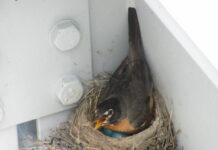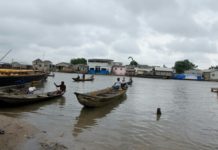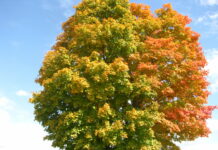
Photo credit: DiasporaEngager (www.DiasporaEngager.com).
When ancient farmers domesticated potatoes, sweetpotatoes, cassava, yams, bananas and certain other non-grain crops, one of the great innovations was vegetative seed. Instead of planting the true, botanical seed that is held in the fruits, farmers planted the roots or stems. This vegetative seed worked great in the tropics and had the advantage that each plant was a clone of its parent: they bred true to type, and the big, vegetative seed gave the crop a headstart in life. But in the modern world, some of these advantages work against vegetative seed. It is notoriously hard to breed. The planting material is a big, wet package, making it difficult to distribute over long distances, and can carry pests and diseases lowering yields.
New types of seed systems are called for to benefit the hundreds of millions of farmers who plant vegetative seed, and the billions of consumers who depend on the crops. New seed systems can be commercial, so that the demand for different varieties helps plant breeders understand what farmers and consumes want. But many new vegetative seed systems have been tried and failed.
RTB has developed a new approach: a toolbox to bring together proven strategies and tools that had worked to successfully diagnose, plan and develop new vegetative seed systems.
A collection of 11 evidence-based tools (including ICTs) helps researchers, practitioners and policy makers understand and support seed systems of root, tuber, and banana crops. The toolbox was developed by a diverse interdisciplinary team of more than 50 experts combining technical, social science and gender expertise. It drew on successful use in Africa, Asia and South America. People designing and implementing a new seed intervention can open the toolbox and choose the tools they need to understand diverse stakeholder perspectives, diagnose and address seed flows, ensure appropriate quality standards, and track seed use. They can do this in a way which will address gender and the needs of different social groups. Hence use of the toolbox can overcome the major bottlenecks with vegetative seed, to create more equitable access to quality seeds and improved varieties.
The CGIAR Research Program on Roots, Tubers and Bananas (RTB), the Bill and Melinda Gates Foundation, Syngenta Foundation, Austrian Development Agency, McKnight Foundation, USAID, DFID, among many others.
CGIAR Research Program on Roots, Tubers and Bananas, IITA, Alliance of Bioversity International and CIAT, PIM, Wageningen University & Research, University of Florida, Makerere University
Source of original article: International Potato Center (cipotato.org).
The content of this article does not necessarily reflect the views or opinion of Global Diaspora News (www.GlobalDiasporaNews.com).
To submit your press release: (https://www.GlobalDiasporaNews.com/pr).
To advertise on Global Diaspora News: (www.GlobalDiasporaNews.com/ads).
Sign up to Global Diaspora News newsletter: (https://www.GlobalDiasporaNews.com/newsletter/) to start receiving updates and opportunities directly in your email inbox for free.






























